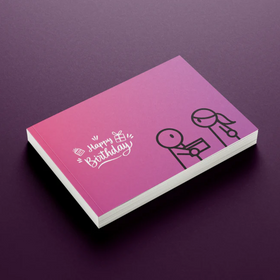on all orders

All about Diwali - The festival of lights
The usher of the wind of goodness comes with the festival of Diwali that marks an important calendar of India where thousands shout out the joy and whimper of a grand festival. Diwali, known as the festival of lights, is celebrated all over India to commemorate the victory of good over evil. It falls in the Gregorian months of October or November following the Dussehra festival. Diwali is also called Deepavali, or Deepawali, all suggesting the Sanskrit root term ‘dipa’ meaning light, lamp or lantern. The festival is harmoniously celebrated by many religions including Sikhs, Jains, Buddhists and Hindus.
The occasion points to the Hindu ritual festival of welcoming Lord Ram back to his kingdom Ayodhya after fourteen years of exile in the forest. He was accompanied by his wife Sita, brother Lakshman and his ardent devotee Lord Hanuman. The natives of the kingdom lit up the land to convey their warmth and love for their beloved king and to celebrate the return of Ram after his victory over the dark Lord Raavan. The event was celebrated throughout the length and breadth of the kingdom in the belief of the coming of good times.
Another popular story that is believed to be a legend of the Diwali festival is the killing of the demon Narakasur. It is the faith of hundreds that lord Krishna annihilated the demon to liberate six thousand girls captured by the devil.
The festival is also commemorated to celebrate the victory of the incarnation of Lord Vishnu over the evil doings. Diwali is closely associated with Goddess Lakshmi where the festival marks the wedding night of the Goddess with Lord Vishnu. The night is celebrated by lighting lamps which then become the annual festival of Diwali. Goddess Lakshmi is named and worshipped differently in various places in India, such as Kali or Durga. In some places, Diwali is considered to be a celebration of the birthday of the goddess Lakshmi that falls on the new moon of the month of Karthika. The occasion is also seen by some believers as the beginning of a new year. It may also be regarded as a harvest festival since it occurs at the time when farmers cultivate rice in the south. Therefore Diwali can be named as a harvest festival of India.
Sikhs celebrate Diwali as Bandi Shor Diwas which can be translated as prison release day. The story of the festival goes that Emperor Jahangir had imprisoned the sixth guru, Guru Hargobind along with fifty-two princes. The emperor had consented to release the Guru but he requested for the release of other prisoners along with him. The king accepted his request with a condition that only those who could escape the walls of prison could hold the robe of Guru Hargobind. This clause was proclaimed by the emperor to reduce the number of inmates leaving the prison. However, the enlightened had a robe stitched with fifty tails each for the princes, liberating everyone along with him. This day is then onwards celebrated by Sikhs which falls on Diwali.
Diwali is celebrated across the Indian mainland and islands by lighting the diyas (small lanterns mostly made of mud) around the house along with all the members of the home. It is a festival where the old and the young enjoy decorating the houses with lanterns. The elderly are taken back to their memory lanes and the young busy themselves in collecting happy moments. The occasion demands for an evening celebration as diyas are to be lit and the light should overtake lingering darkness in our lives. The festival is also celebrated with great splendour and fervour with elaborate pujas.
Another important marker of the festival is drawing rangoli on the threshold of the house. These colourful patterns adorn the house indicating the positivity and liveliness of the festival. Rangolis are drawn using various items including dry flour, limestone and coloured sand in various patterns such as geometric shapes, flower or petal designs etc. These coloured patterns are an indication to welcome the Goddess of good luck and wealth, Lakshmi. It is believed that the goddess enters houses that are only neat and tidy. She may be worshipped in the forms of earthen images or silver coins.
Another prominent way of celebrating Diwali is by bursting firecrackers. A lot of people engage in buying the colourful, noisy and attractive firecrackers to burst during the festival season of Diwali in the belief that the loud sound and light emanating from them will scare the evil spirits away. The popular types of firecrackers include sparklers, ground spinners, flowerpots, rockets, and twinkling stars. The use of firecrackers is today restricted by the government due to the extreme pollution it causes and defilement of the environment. Air, noise and land pollution caused by the firecrackers degrade the environment and risk the healthy surroundings. Presently, the authorities and nature-lovers promote an eco-friendly Diwali which does not disturb the environment but preserves the spirit of the festival.
Diwali is as much a celebration of home as it is of a larger community. It is a five-day-long festival which begins with the cleaning of the houses and their premises. Curtains, sofas, fans, shelves are dusted and cleaned before decorating it with lamps, flowers and other adorning items. Since it is believed that the festival brings prosperity, many Hindu merchants try to start a new account book, closing all the previous monetary exchanges. It is also the time of get-togethers of families and friends. They wear new clothes indicating the welcoming of new things and clean items. They visit the homes of their loved ones with lots of gifts for one another. People share meals and indulge in light talks. Sweets are an important part of Diwali where everyone tries to spread joy by distributing it. The occasion calls for a happy time forgetting worries, pains, and vendettas, bringing the people of the mortal realm to live a life of spirituality and happiness. They try to forgive and help each other to secure a better life of joy.
Diwali is an occasion to gather and solidify relations. It is a celebration of fostering bonds with one another by contacting and cementing ties of brotherhood. It is a common custom around the world to share happiness among families and friends through feasting and by sharing gifts. The exchange of Diwali gifts has a profound impact on maintaining relationships. It becomes a symbol of love and affection we reserve for another person. Gifts become souvenirs and remain for years as a mark of good happy times.
Diwali is a festival where loved ones share simple tokens of love to convey their deep-held feelings. Gifts contain warmth when they are personalised according to the taste of the recipient. Certain buddy things solely known to near ones can be added to the gifts to make the present filled with love and endearing. They hold a different value when photos are included since they talk about moments that can open the doors of memories. Customized photo albums are an ideal gift for every occasion. Diwali can be celebrated by gifting photo albums to our close-knit family and friends. The digital era has almost vanished the practice of preserving photos through albums. However, with the advent of new start-ups and recognising the need of the hour, the facilities of creating photo albums have emerged. This provides an ideal terrain to create photo albums and share them among our dear ones. The simple things of turning every page to witness mad times can never go out of fashion. Apart from photo albums, captured moments can also be customised in different ways to give others like personalized photo gifts. It is available in multiple formats to personalise the photos which can be presented at the festival of lights.
Diwali demands us to indulge ourselves in keeping ourselves and others happy holding fast to our relationship bonds. The festival is to be celebrated with luminescence, where the glow has to emanate from the light of the fire. The most common method is to fire up a small lamp, traditionally called Diya. These lighten up the space where they are lit, chasing the darkness away. Diyas can be customised and gifted to loved ones. They can either be lit or kept as a souvenir. On the occasion of Diwali, custom diyas can ultimately capture the mood of the fest and work as a perfect gift. The love tokens can also be delivered while residing at places far from our dear ones. These gifts can be sent through ideal platforms which can ensure safety and security and increase bonding using long distance relationship gifts. The distance between each other is reduced when a heart flattering gift is sent. The joy of any festival lies in sharing happiness. Gifts act as a medium of sharing this happiness. They are wrapped in the feelings of love, care, and affection to be sent to convey the same. The items may themselves be small but the time taken to select these gifts will be deeply appreciated by the recipient, and will always be remembered. Diwali is a celebration of goodness, compassion and joy.
Celebrate Diwali 2021 in style with perfect Diwali gifts from Dudus Online.
Dudus online offers its customers to send Diwali gifts online in India with ease through their website. The innovative personalized gifts ideas at dudus offer its customers a unique online gifting experience using a variety of products like photo gifts, custom photo books, Diwali gift hampers and many more customized gifts.
Corporate gifting in a new and innovative way. Dudus Online also offers corporate Diwali gifts through its newly launched Corporate collaboration platform.





Leave a comment